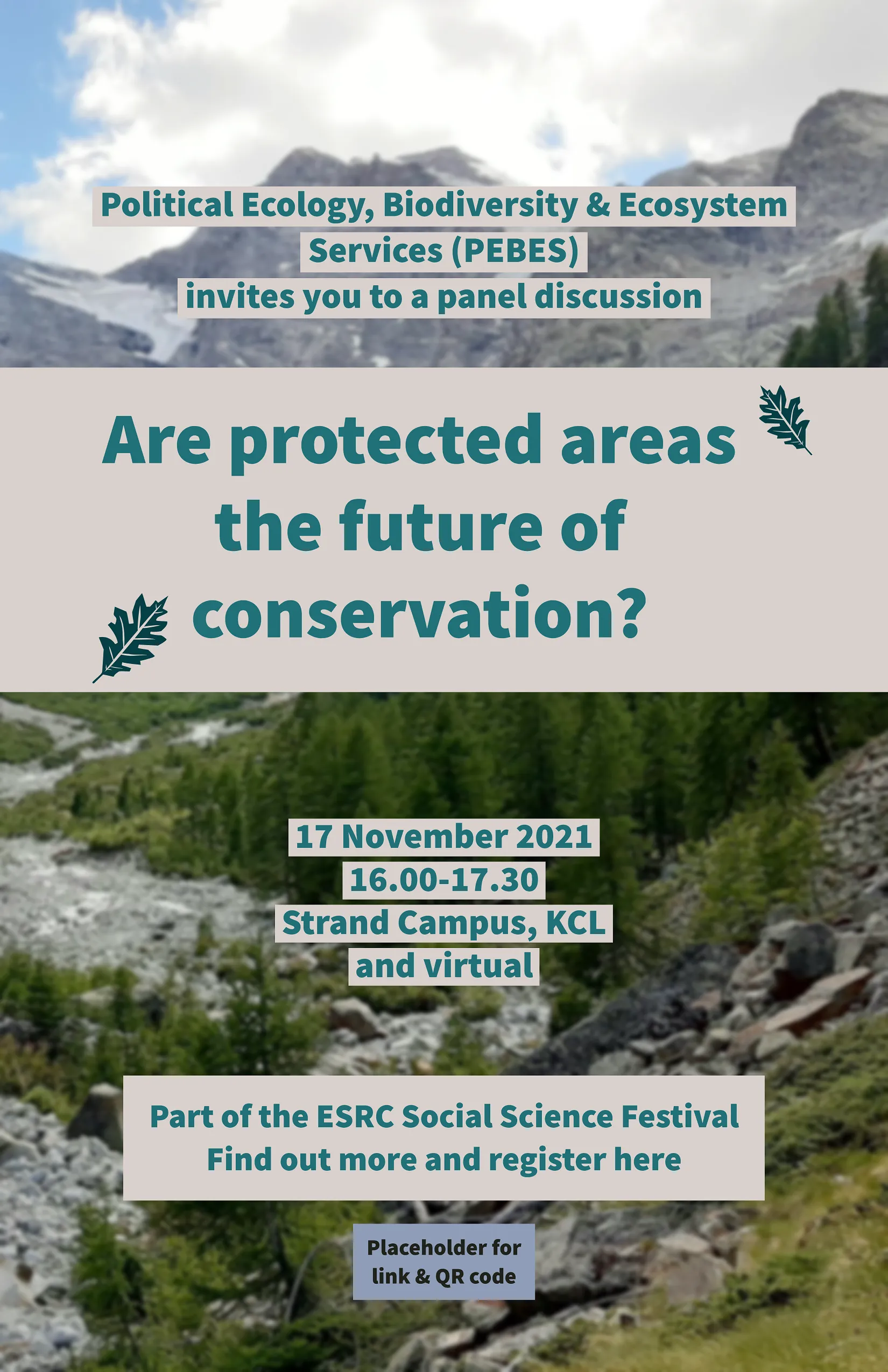Please note: this event has passed
This event takes place as part of the ESRC social science festival and will highlight different issues that are too often ignored in discourse on biodiversity conservation. At the same time it will serve to present on-going research conducted by the recently established Political Ecology, Biodiversity & Ecosystem Services (PEBES) research group.
Nature conservation is crucial to the survival of our planet, and to the health and well-being of society. However, despite the protected areas network on Earth having been increased to around 17% and 8% of the Earth’s land and oceans respectively, nature is declining globally at rates unprecedented in human history. Discussions surrounding the post-2020 Global Biodiversity Framework, although delayed by the pandemic, are well underway. In this context several actors are advocating for the creation of more protected areas (e.g. target of 30% by 2030) – yet this development is controversial as protected areas also have a number of socio-political implications. Simultaneously, IPBES (the ‘IPCC for biodiversity’) is undertaking an assessment on transformative change. If protected areas, which are a cornerstone of biodiversity conservation globally, are to contribute to transformative change a more equitable approach to conservation that recognises past spiritual, cultural, and material traditions needs to be achieved.
The winner of the Political Ecology, Biodiversity and Ecosystem Services photography competition will also be announced.
This event will take place in the Exchange in Bush House North East.
About the speakers
Four invited panel speakers, drawing upon our KCL Geography PhD students, will each talk for 8 minutes about different aspects of nature conservation and discuss the shortcomings of current protected areas strategies. This will be followed by a 60-minutes panel/wider audience debate on the future of protected areas, and nature conversation more broadly. Alternative governance structures that respect traditions and culture already embedded in local landscapes, support poverty alleviation and livelihood security of local communities will be discussed.
Chair:
Dr Maud Borie , Lecturer in Human Geography, Department of Geography and co-convenor of the Political Ecology, Biodiversity, and Ecosystem Services research group
Laura Kor is a PhD student in King's Department of Geography, the Royal Botanic Gardens Kew and UCL's Anthropology Department. She is interested in applying interdisciplinary ecological and social approaches for the conservation of biodiversity.
Constance Schéré is a PhD student from Brittany (France), studying marine conservation biology. Her research focuses on the effectiveness of marine protected areas as a conservation tool. Constance has a MSc in Biodiversity, Territory, and Environment (BIOTERRE) from the Sorbonne (Université de Paris 1 : Panthéon-Sorbonne, 2017) and a MSc in Environmental Policy from SciencesPo Paris (2013).
Naira Dehmel is a PhD student in the Department of Geography. She is interested in behavioural change, institutional effectiveness and equitable governance for the sustainable use - ecologically and socially - of natural resources. Her research is funded by LISS DTP and is affiliated to the International Institute for Environment and Development.
Brandon Mak is a PhD student in the Department of Geography. He trained as an architect at the University of Edinburgh between 2012-17, where he earned a BA and Master of Architecture.
Discussant:
Terry Dawson, Professor of Global Environmental Change, Department of Geography and co-convenor of the Political Ecology, Biodiversity, and Ecosystem Services research group

